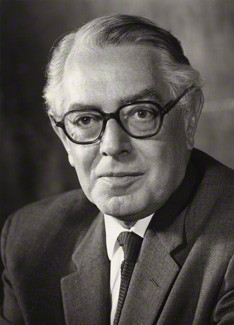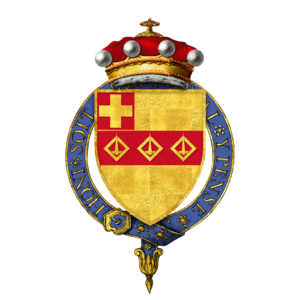Edward Shackleton, Baron Shackleton facts for kids
Quick facts for kids
The Lord Shackleton
|
|
|---|---|

1969 photograph, by Godfrey Argent
|
|
| Leader of the Opposition in the House of Lords Shadow Leader of the House of Lords |
|
| In office 19 June 1970 – 4 March 1974 |
|
| Leader | |
| Preceded by | The Lord Carrington |
| Succeeded by | The Lord Carrington |
| Leader of the House of Lords | |
| In office 16 January 1968 – 20 June 1970 |
|
| Monarch | Elizabeth II |
| Prime Minister | Harold Wilson |
| Preceded by | The Earl of Longford |
| Succeeded by | The Earl Jellicoe |
| Lord Keeper of the Privy Seal | |
| In office 1 November 1968 – 20 June 1970 |
|
| Monarch | Elizabeth II |
| Prime Minister | Harold Wilson |
| Preceded by | Fred Peart |
| Succeeded by | The Earl Jellicoe |
| Paymaster General | |
| In office 6 April 1968 – 1 November 1968 |
|
| Monarch | Elizabeth II |
| Prime Minister | Harold Wilson |
| Preceded by | George Wigg |
| Succeeded by | Judith Hart |
| Deputy Leader of the House of Lords | |
| In office 7 January 1967 – 16 January 1968 |
|
| Monarch | Elizabeth II |
| Prime Minister | Harold Wilson |
| Leader | The Earl of Longford |
| Preceded by | The Lord Champion |
| Succeeded by | The Lord Shepherd |
| Minister without Portfolio | |
| In office 7 January 1967 – 16 January 1968 |
|
| Monarch | Elizabeth II |
| Prime Minister | Harold Wilson |
| Preceded by | Douglas Houghton |
| Succeeded by | Patrick Gordon Walker |
| Minister of State for the Air Force | |
| In office 19 October 1964 – 7 January 1967 |
|
| Monarch | Elizabeth II |
| Prime Minister | Harold Wilson |
| Preceded by | Hugh Fraser |
| Succeeded by | office abolished |
| Member of the House of Lords Lord Temporal |
|
| In office 11 August 1958 – 22 September 1994 Life peerage |
|
| Member of Parliament for Preston South |
|
| In office 23 February 1950 – 6 May 1955 |
|
| Preceded by | constituency established |
| Succeeded by | Alan Green |
| Member of Parliament for Preston |
|
| In office 31 January 1946 – 3 February 1950 |
|
| Preceded by | John William Sunderland |
| Succeeded by | constituency abolished |
| Personal details | |
| Born | 15 July 1911 |
| Died | 22 September 1994 (aged 83) |
| Spouse |
Betty Horman
(m. 1938) |
| Children | 2 |
| Parents | Ernest Shackleton Emily Dorman |
| Alma mater | Magdalen College, Oxford |
| Military career | |
| Allegiance | United Kingdom |
| Service/ |
Royal Air Force |
| Years of service | 1940–1956 |
| Rank | Wing Commander |
| Service number | 83143 |
| Battles/wars | Second World War |
| Awards | Officer of the Order of the British Empire |
Edward Arthur Alexander Shackleton, Baron Shackleton (born 15 July 1911 – died 22 September 1994) was a British geographer, a brave officer in the Royal Air Force, and a Labour Party politician. He was the son of the famous Antarctic explorer, Ernest Shackleton. Edward Shackleton had a long career serving his country in many important roles.
Contents
Early Life and Adventures
Edward Shackleton was born in Wandsworth, London. He was the younger son of Emily Mary and Sir Ernest Shackleton. His father was a legendary explorer of the South Pole.
Edward went to Radley College, a boarding school in Oxfordshire. After that, he studied at Magdalen College, part of the University of Oxford.
Exploring the World
Shackleton loved adventure, just like his father. In 1932, he helped organize an expedition to Sarawak in Borneo. During this trip, he was the first person to climb Mount Mulu.
In 1934, he organized another trip, the Oxford University Ellesmere Land Expedition. He went along as an assistant surveyor. This expedition named Mount Oxford and the British Empire Range.
After university, he worked for the BBC in Northern Ireland. This experience changed his political views. He decided to support the Labour Party instead of the Conservatives.
Serving in the Royal Air Force
Edward Shackleton joined the Royal Air Force (RAF) during the Second World War. He started as a pilot officer in 1940. He quickly moved up the ranks.
By 1945, he was an acting wing commander. He was recognized for his bravery and service. In 1945, he was awarded the Officer of the Order of the British Empire (OBE). He left the RAF in 1956, keeping his rank of wing commander.
A Life in Politics
Shackleton tried to become a Member of Parliament (MP) for the Labour Party several times. An MP is someone elected to represent people in the UK Parliament.
In 1946, he was elected as an MP for Preston. Later, in 1950, he became the MP for Preston South. He worked as a special assistant to important government ministers.
Joining the House of Lords
In 1955, he lost his seat as an MP. However, in 1958, he was given a special honor. He became a life peer, which means he was given the title of Baron Shackleton and could sit in the House of Lords for the rest of his life. The House of Lords is the second chamber of the UK Parliament.
His first speech in the House of Lords was about helping workers and businesses understand each other better.
Government Roles
When Harold Wilson became Prime Minister, Shackleton held many important jobs:
- From 1964 to 1967, he was the Minister of Defence for the RAF.
- In 1966, he joined the Privy Council, a group of important advisors to the Queen.
- He became the Deputy Leader of the House of Lords in 1967.
- He also served as a Minister without Portfolio and Paymaster General. These roles meant he was part of the Prime Minister's main team, the Cabinet.
In 1968, he became the Leader of the House of Lords. This meant he was in charge of the government's business in the House of Lords. He worked on plans to change how the House of Lords worked, but these changes did not happen.
After the Labour government lost power in 1970, Shackleton became the Opposition Leader in the House of Lords. This meant he led the Labour Party's efforts to challenge the new government.
Later Life and Honors
Edward Shackleton continued to be very active after his main political roles.
- From 1971, he was the President of the Royal Geographical Society. This society promotes geography and exploration.
- In 1974, he received a very high honor: he was made a Knight Companion of the Order of the Garter.
- He also wrote a report about the future of the Falkland Islands, which was very important for the islanders.
- In 1989, he became a Fellow of the Royal Society, a group of top scientists.
- In 1990, he received an honorary Order of Australia for his work in strengthening ties between Australia and Britain.
The University of Southampton named a building after him, the Shackleton Building, because of his interest in geography there.
He also became the Life President of the James Caird Society. This society is named after the boat his father used to escape Antarctica. He was also a patron of the British Schools Exploring Society.
Personal Life
In 1938, Edward Shackleton married Betty Homan. They had two children, a daughter named Alexandra and a son named Charles.
He passed away in 1994 at the age of 83 in the New Forest.
Arms
Lord Shackleton's special banner from the Order of the Garter is now on display in Christ Church Cathedral in the Falkland Islands. It used to hang in St. George's Chapel in Windsor.
 | George Robert Carruthers |
 | Patricia Bath |
 | Jan Ernst Matzeliger |
 | Alexander Miles |


